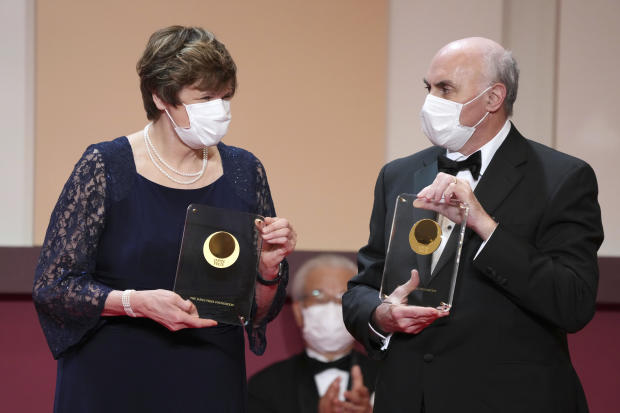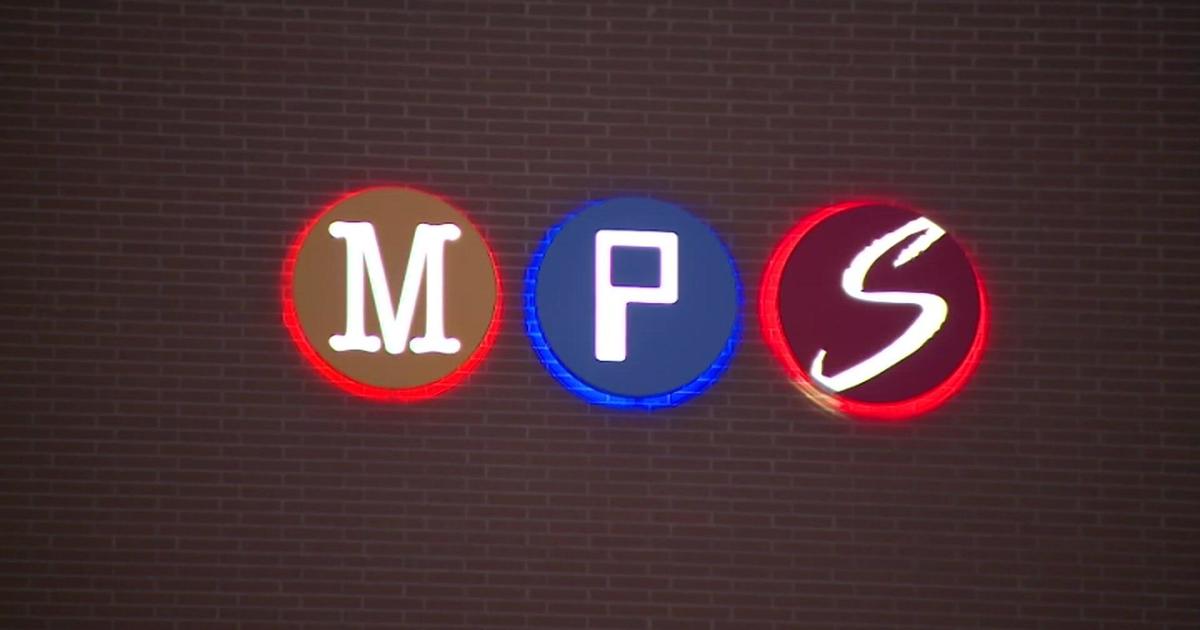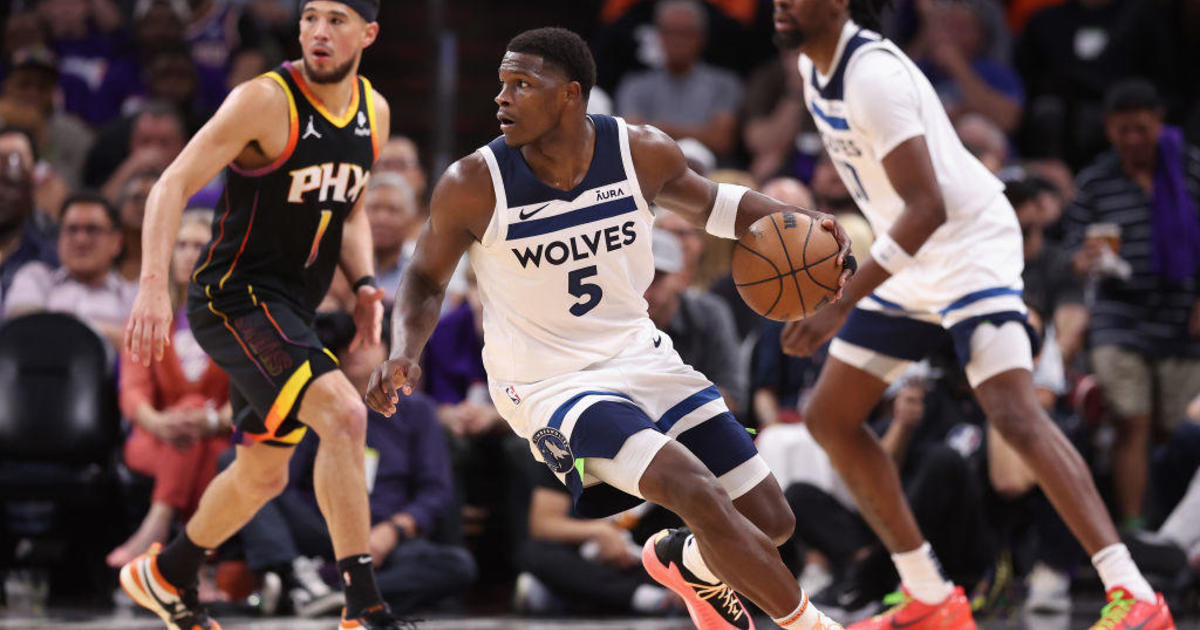Nobel Prize in medicine goes to Drew Weissman of U.S., Hungarian Katalin Karikó for enabling COVID-19 vaccines
Stockholm — The Nobel Prize in medicine has been awarded to Hungarian Katalin Karikó and Drew Weissman of the U.S. for discoveries that enabled the development of effective mRNA vaccines against COVID-19. Thomas Perlmann, secretary of the Nobel Assembly, announced the award Monday in Stockholm.
"Through their groundbreaking findings, which have fundamentally changed our understanding of how mRNA interacts with our immune system, the laureates contributed to the unprecedented rate of vaccine development during one of the greatest threats to human health in modern times," the panel that awarded the prize said.
Perlmann said both scientists were "overwhelmed" by news of the prize when he contacted them shortly before the announcement.
Karikó said her husband was the first to pick up the early morning call, then handed it to her to hear the news. "I couldn't believe it," she said. "I was very much surprised. But I am very happy."
Weissman is a professor at the University of Pennsylvania, where he also serves as director of vaccine research in the Infectious Diseases Division and as director of the Institute for RNA Innovation. Karikó is a professor at Sagan's University in Hungary and an adjunct professor at the University of Pennsylvania.
According to Penn Medicine, they first met by chance in the 1990s while photocopying research papers, and then began working together on mRNA research, publishing a key discovery in 2005 showing mRNA could be harnessed to activate the body's protective immune system.
Before COVID-19, mRNA vaccines were already being tested for other diseases like Zika, influenza and rabies, but the pandemic brought more attention to this approach, Karikó said.
"There was already clinical trials before COVID, but people were not aware," she said.
Traditionally, making vaccines required growing viruses or pieces of viruses — often in giant vats of cells or, like most flu shots, in chicken eggs — and then purifying them before next steps in brewing shots. The messenger RNA approach is radically different. It starts with a snippet of genetic code that carries instructions for making proteins.
"Instead of growing up a virus in a 50,000-liter drum and inactivating it, we could deliver RNA and our bodies make the protein, which starts the immune response," Weissman explained in 2020.
The mRNA approach was harnessed in the COVID vaccines developed by Moderna and by Pfizer and its partner BioNTech.
"When the COVID-19 pandemic struck, the true value of the pair's lab work was revealed in the most timely of ways," Penn Medicine said in a statement. "Both Pfizer/BioNTech and Moderna utilized Karikó and Weissman's technology to build their highly effective vaccines to protect against severe illness and death from the virus. In the United States alone, mRNA vaccines make up more than 655 million total doses of SARS-CoV-2 vaccines that have been administered since they became available in December 2020."
One study estimated that COVID vaccines saved nearly 20 million lives worldwide in their first year alone.
Dr. Paul Hunter, a professor of medicine at Britain's University of East Anglia, described the mRNA vaccines as a "game changer" against the coronavirus pandemic.
"If it hadn't been for the mRNA technology, COVID would have been much worse," he said. "Vaccines generally were the turning point in slowing down COVID and the mRNA vaccines were just so much better than all the others," he said, noting that a non-mRNA formula from AstraZeneca is barely in use anymore.
"We would likely only now be coming out of the depths of COVID without the mRNA vaccines," Hunter said.
Karikó was a senior vice president at BioNTech, which partnered with Pfizer to make one of the COVID-19 vaccines. The BioNtech website says that since 2022 she has been an external consultant. She is the 13th woman to win the Nobel Prize in medicine.
Dr. Bharat Pankhania, an infectious diseases expert at Exeter University, said that a major advantage of mRNA technology was that vaccines could be made in extremely large quantities since their main components are made in laboratories.
Pankhania predicted that the technology used in the vaccines could be used to refine vaccines for other diseases like Ebola, malaria and dengue, and might also be used to create shots that immunize people against certain types of cancer or auto-immune diseases like lupus.
"It's possible that we could vaccinate people against abnormal cancer proteins and have the immune system attack it after being given a targeted mRNA shot," he explained. "It's a much more targeted technology than has been previously available and could revolutionize how we handle not only outbreaks, but non-communicable diseases."
Nobel announcements continue with the physics prize on Tuesday, chemistry on Wednesday and literature on Thursday. The Nobel Peace Prize will be announced Friday and the economics award on Oct. 9.
The prizes carry a cash award of 11 million Swedish kronor ($1 million). The money comes from a bequest left by the prize's creator, Swedish inventor Alfred Nobel, who died in 1896.
The laureates are invited to receive their awards at ceremonies on Dec. 10, the anniversary of Nobel's death. The prestigious peace prize is handed out in Oslo, according to his wishes, while the other award ceremony is held in Stockholm.




